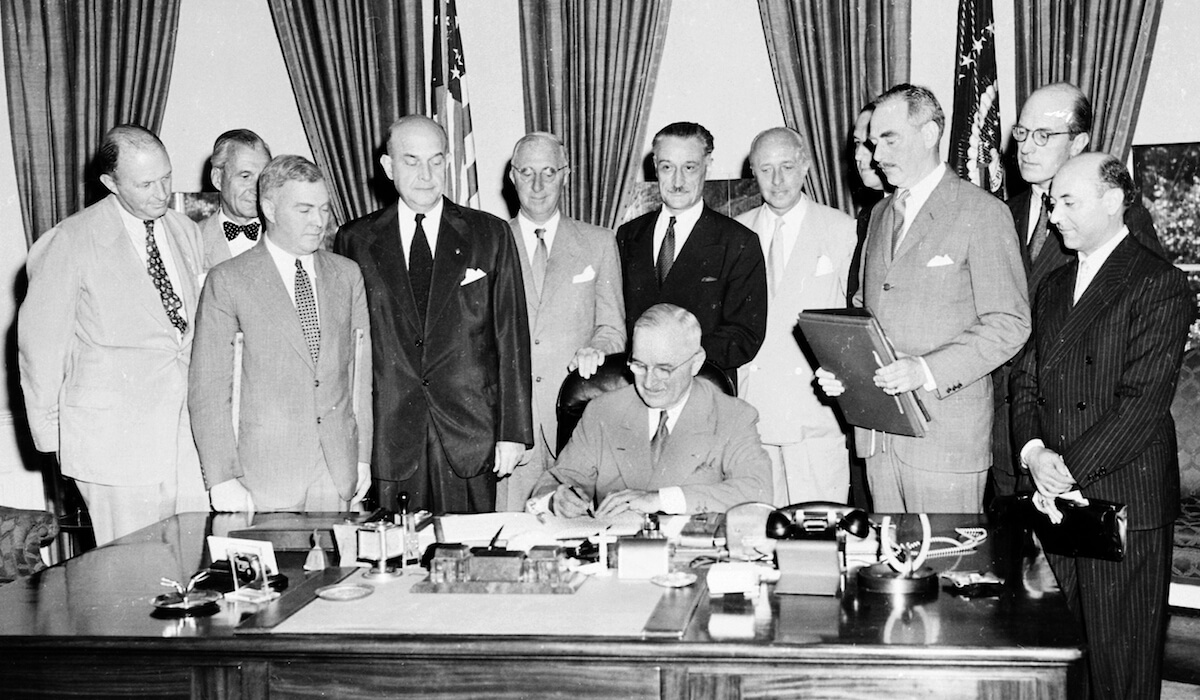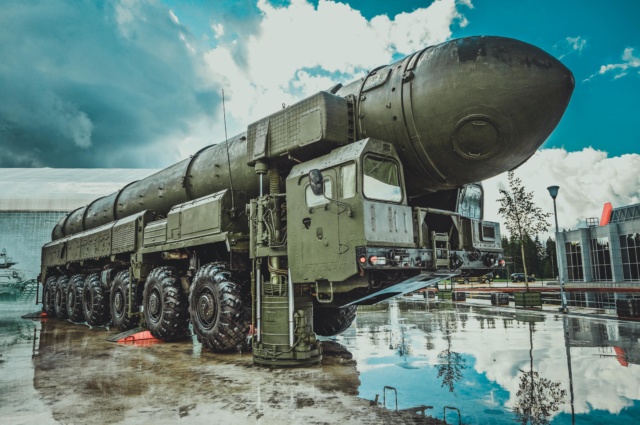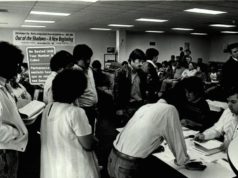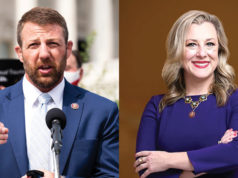In his famous 1947 article called The Sources of Soviet Conduct, diplomat and historian George Kennan sought to describe the way the Soviet Union would approach the Western world in the years to come. Kennan created the concept of containment — preventing the Soviet Union from gaining new satellite states and growing its power throughout the world.
Say what one will about the success or failure of American policy during the Cold War, but Kennan’s article was a revolutionary document for the time. It powerfully reminded his readers that America’s ability to meet the challenge of Communism would be achieved not through what would later be called McCarthyism but rather an openness and willingness to embrace America’s values.
“To avoid destruction, the United States need only measure up to its own best traditions and prove itself worthy of preservation as a great nation,” stated Kennan.
Despite some turbulence, including McCarthy’s rise in the 1950s and the Vietnam War of the 1960s, the United States did a pretty good job, all things considered. When Barry Goldwater claimed that “extremism in the defense of liberty is no vice,” the American people responded and said, “Yes, it sure is, Barry,” by reelecting LBJ president in the landslide of 1964. There were mistakes, no doubt, but they were more than exceeded by America’s successes in preventing a major world conflict.
Since 1945, American foreign policy has been centered on the goal of making the world safe for democracy. I know it sounds hokey, but it’s true. Through careful statesmanship and, frankly, a good deal of luck, the United States has ensured that Western Europe’s countries remained liberal democracies after the war.
What we now call the European Union began as an effort by West Germany and France to turn their swords into plowshares through joint control of coal and steel production. Working with our European allies, we built a security alliance — NATO — that preserved peace across Europe and prevented a Soviet attack. Looking back on Europe over the past 200 years, the European Union project and the transatlantic alliance have been incredibly successful.

Trust crucial for America’s foreign policies
But it is not our values alone that give us our strength, it’s also the trust our allies place in us. Which is why it was so deeply disconcerting to hear Donald Trump claim that if we were attacked, the Japanese would sit back and watch Sony TVs.
I mean, I don’t know where to start with that statement. Do I begin by mentioning that Douglas MacArthur wrote Japan’s postwar constitution that prohibited them from building offensive forces and, in exchange, promised that the United States would act as the guarantor of stability in East Asia? Or do I remind Trump and others that Japan is a key partner in Asia, especially with China’s current expansionist policies?
Think about it this way: What would Japan or South Korea do if we said, “Good luck!” and pulled our troops out? It would create a security vacuum that they would attempt to fill, first by building their own conventional forces but then by building nuclear weapons programs. It’s the only way they could achieve some sort of balance with China. Even that might not be enough to protect them. Our leaving would trigger a major security crisis.
Troubling affinity for Russia
When we elect a president, we also elect several thousand civil servants. We must rely on the new president’s judgement of character to select the best and the brightest, people who will serve the administration with distinction.
That’s why I found it incredibly disconcerting that Trump’s chief foreign-policy advisor has revealed a deep admiration for a man who prides himself on being an agent of geopolitical instability: Vladimir Putin.
That Trump has ties to Russia is well-known (he gets a lot of his money from Russian oligarchs), and he seems to have an odd affection for Putin, a bullying strongman who seeks willing fools in the far-right and far-left in Europe. Putin seeks to use Trump (and Jill Stein, as it turns out, who was a guest of honor at a dinner hosted by Putin and his propaganda network Russia Today) to divide the West and weaken the transatlantic alliance. Putin knows he cannot win with the West working together as a group of liberal democracies, but he does know that he can gain the upper hand when we are disunited and distracted.
Russia is not a normal country. Normal countries don’t launch covert invasions of their neighbors. Nor do they intentionally bomb Syrian hospitals in aid of their insane Syrian ally. The ideology might have changed in 1991, but the institutions didn’t, and they are back to the same tactics.
A true know-nothing on foreign policy
When we elect a president, there is no requirement that he or she ought to have studied international affairs; however, we must demand a reasonable degree of knowledge and competence, especially in foreign affairs.
Trump doesn’t seem to have the slightest idea about anything.
Not Ukraine, where he wasn’t even sure if Putin had invaded. Not NATO, of which he proposed to pull the United States out. Trump’s willing ignorance makes a global crisis considerably more likely, not less. And Trump forgets that the only time the NATO alliance has been called into action was on 9-11, when our NATO allies in Europe helped us defeat the Taliban in Afghanistan. NATO’s strength also prevented the Cold War from turning hot and continues to do so today.
The stakes are too high
Trump’s foreign policies following his potential election would trigger a crisis, but don’t take my word for it: Max Boot, the foreign-policy advisor to Mitt Romney and Marco Rubio, writing in the arch-conservative magazine Commentary, called Trump a threat to our national security.
Robert Kagan, a veteran of Ronald Reagan’s White House, said that, in Trump, the GOP had created its “Frankenstein’s monster.” Finally, non-partisan career-CIA agent Michael Morell, who was in the Situation Room on the night our special forces killed Osama bin Laden, has argued that Trump has fallen directly into Putin’s trap.
In Hillary Clinton, Morell found someone who puts country first, someone “prepared, detail-oriented, thoughtful, inquisitive and willing to change her mind if presented with a compelling argument,” as he wrote in the New York Times article linked above. In other words, he notes her to be the kind of person that foreign-policy leadership requires. Even John Schindler, a former NSA officer and professor at the Naval War College, a man who hates Hillary Clinton and called her unprintable things, believes that she is the better choice.
Imagine what will happen if Trump actually becomes president: His willingness to pull up the drawbridge and surrender our leadership role puts too much at stake.
And the whole world is counting on us.






















